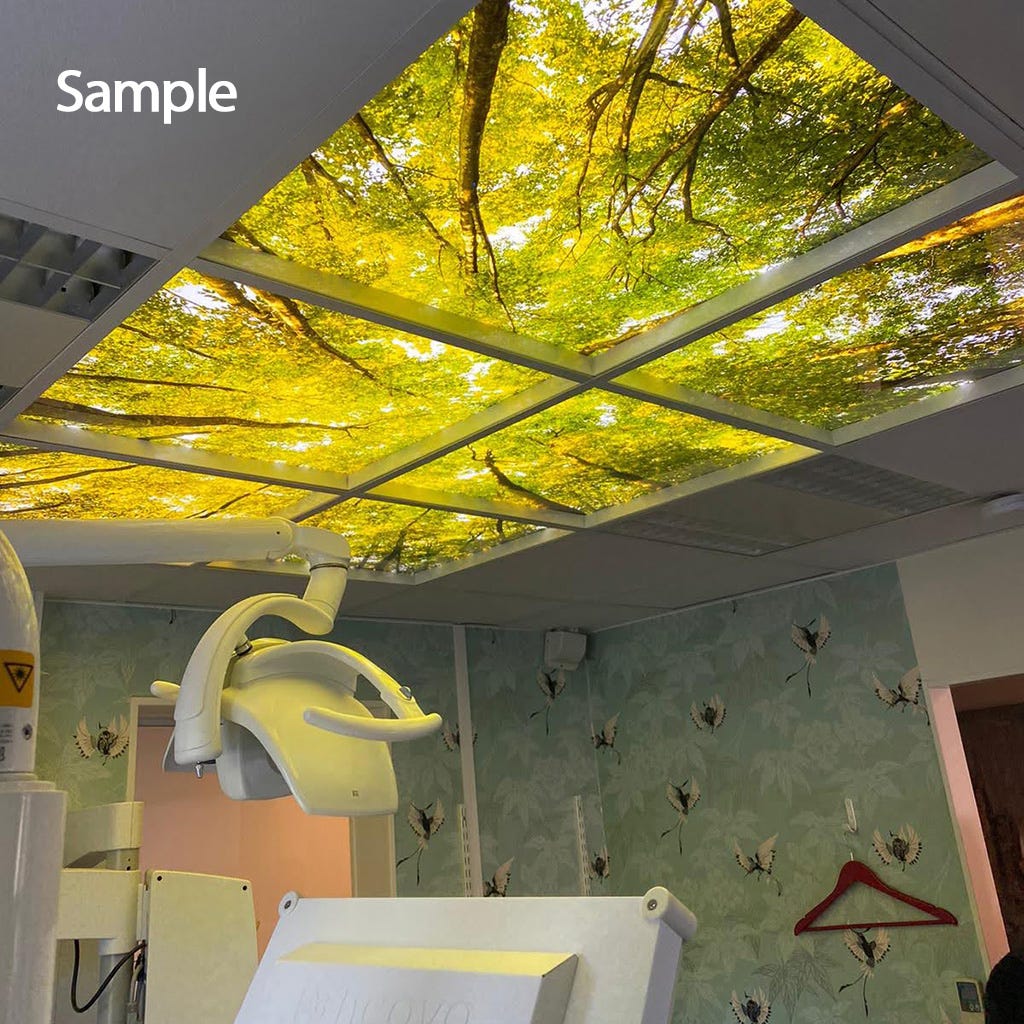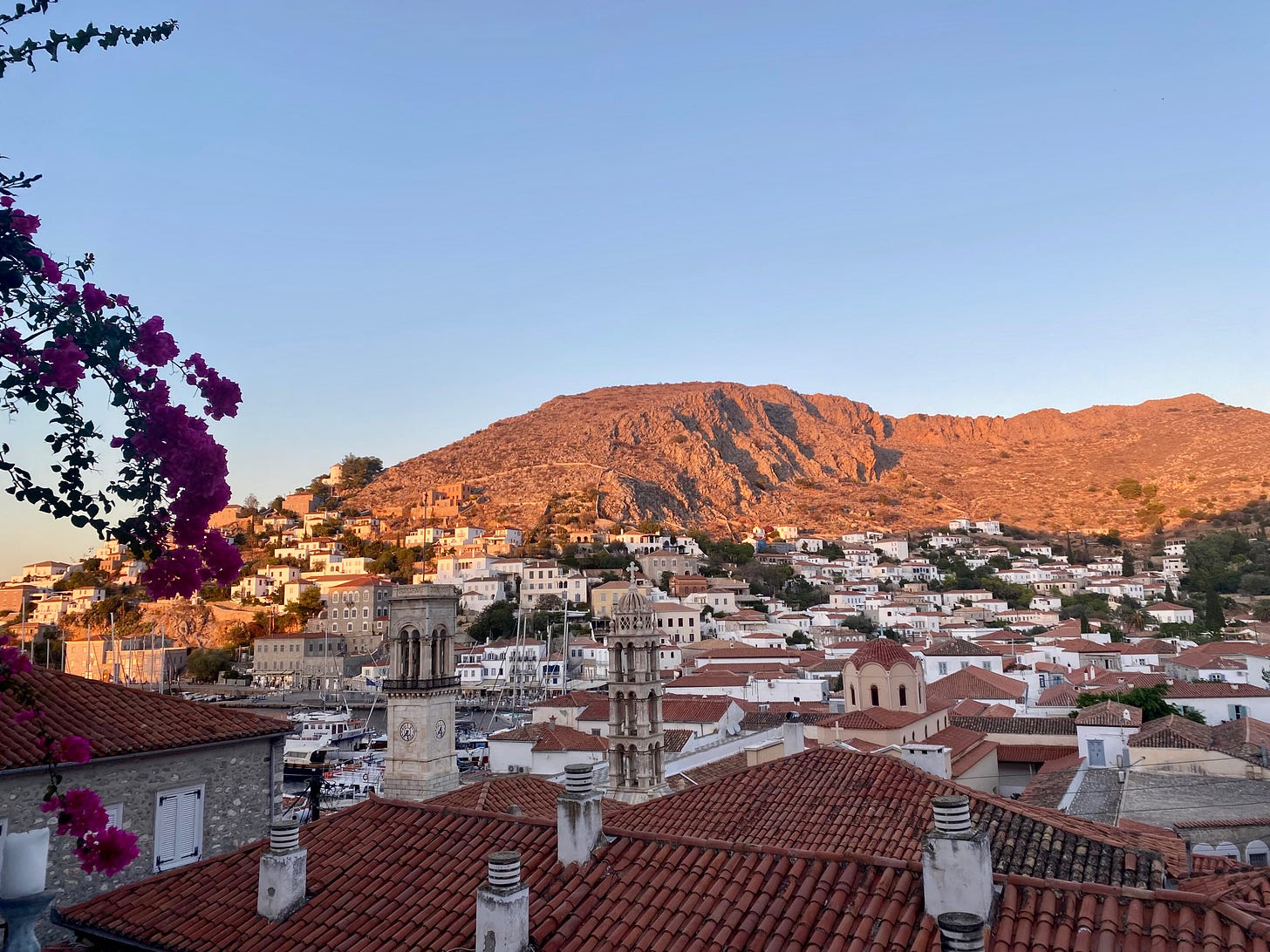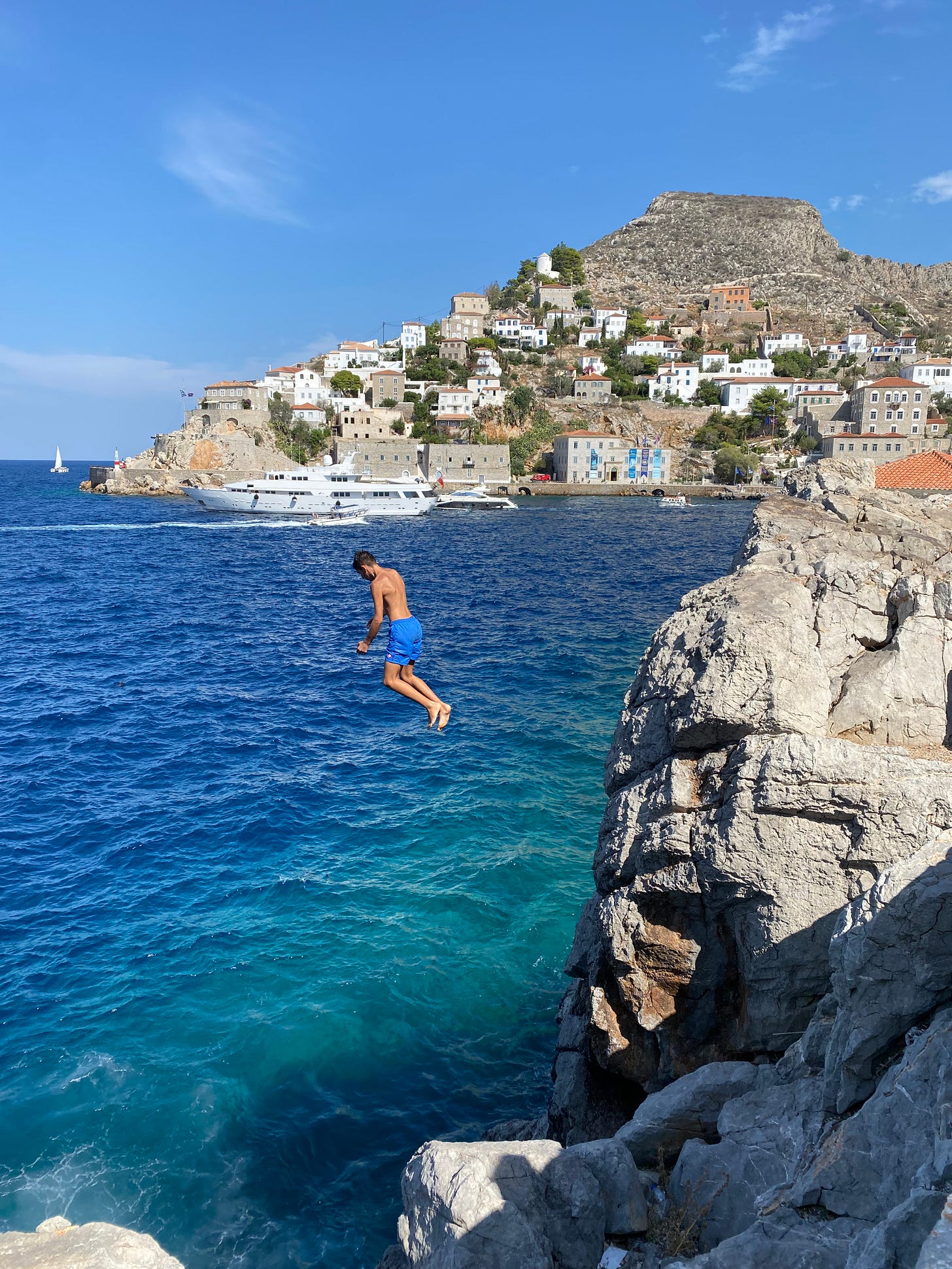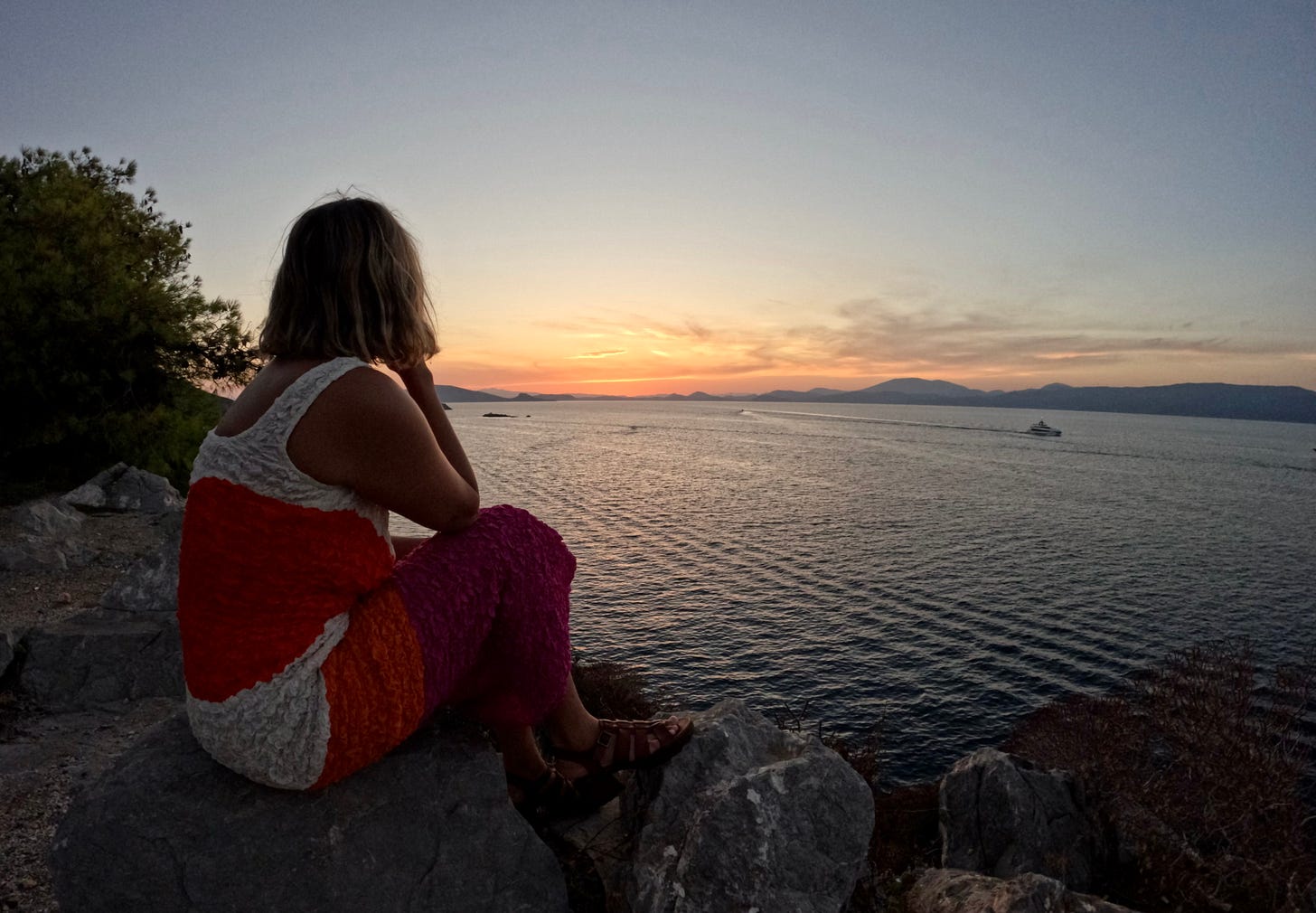I got a CT scan this morning, since the ENT found nothing suspicious after inelegantly rooting around my nasal cavity with a blunt 11-inch stylus, and had no explanation for my constant string of maladies this spring/summer other than “You have small children.” I arranged myself down the middle of the huge white coffin tunnel and held my own hands. On the ceiling, there was an ugly forest light panel, something like this:
Though my office’s scene had a babbling brook. As the machine whirred and buzzed around me, I felt aggravated by the light panels before I realized they had arranged them upside down: the water was flowing the wrong way, the tree branches were growing towards me. It gave a suffocating sort of feeling, which I suspect was the opposite intention of the panel given the entire experience of entering a medical chamber.
Luckily, it was over and done with before I had to start finding something else to look at. If the scan had lasted much longer, I would have had to do what I always do in unpleasant physiological states, which is go to the Greek island of Hydra in my mind. I have done this for 15 years now, since I first visited the island.
This is why, just a few weeks ago, it was overwhelmingly powerful to step off the ferry and be walloped in the chest with the image that I have spent 15 years going to in my mind in every dental appointment, at every vaccination or blood draw, during my epidural, through the hardest exercise classes lol, during my LASIK procedure, and through 36 hours of labor with Rowan.
Bliss!!!!!!
Much of the unique bliss of the island is, it involves a LOT of walking. Hydra is 11 miles long and 3 miles wide, and most of it is mountainous terrain. The port is flat and other than that, the entire island is uphill. To get to the point of the island where you can relax on a rocky European beach, you have to walk about 8,000 steps. To get to the big monastery at the top of the island, you have to hike for 3-4 hours. It’s all an incredibly rewarding toil, and in part a theory of why the island has attracted so many artists over the years (Henry Miller, Leonard Cohen, Henri Cartier-Bresson, George Seferis, Deborah Levy).
The British painter William Pownall, a soft-spoken angel with acrylic wings, who we interviewed 15 years ago and were lucky enough to take up with again this time, said there’s something to creativity and all the walking on the island. A 2021 Stanford study found that creative output increased by a whopping 60% when participants were walking. Everything else gets drowned out, and it’s just your thoughts and the meter of your own gait, punctuated by cicadas, birds, and the sound of donkey clops.
The cold, soft water came from a well. It was such a pleasure to take an outdoor shower in the small hours under the fig tree. Really, I would have been happy if it was my last moment on Earth. We sliced open a juicy watermelon and ate it under the stars, all of us sitting on the stone wall like birds on a wire, the song Leonard Cohen had written in Hydra all those years ago.
-Deborah Levy
In the mornings we would interview the people who made the island move — slowly and quietly, but move nevertheless — with art, literature, food, commerce, and music. In the heady, hot late afternoons, I would jump into the Aegean and look at the little Greek fish through a snorkel mask and do the backstroke as close as I could get to the buoys that separated me from the boat paths, envisioning myself an ancient Greek, life boiled down to the essentials, as an ancient island existence would require.
After my swims, I would shake off and read tales of Bronze Age adventure on the archaic islands bursting around Greece’s coastline in Emily Wilson’s translation of Homer’s Odyssey. Her translation is an inordinately captivating one, moving in gorgeous rhythm at breakneck speed despite its imposing length, and gloriously feminist — the first translation to not use the term “slut” or “whore” when referring to Penelope or the slaves who were raped by their oppressors —! I love this cheeky quote from a lecture about The Odyssey: “I would like there to be just as many thoughtless and badly written translations by women as there already are by men.”
It was perfect synchronicity to explore an island largely untouched by time (despite the presence of heinously ugly super yachts just off shore) while reading such a thrilling and truly timeless tale of naval antics, antagonistic behavior on the part of the gods, interspecies trickery, and achingly human betrayal and loyalty. Odysseus parses the difference between those he encounters in terms of being “lawless aggressors,” or people who welcome strangers. There is no in between for him, or for people of his time: hospitality meant trust, understanding, and friendship, and was a way to move between cultures at a time when doing so was extremely rare. Hydra bestowed nothing less upon us in both of our times there, its inhabitants welcoming us into their studios, restaurants, shops, homes, and horse and donkey corrals with nothing less than an epic poem of generosity.










Another well written view of that magically special place that transcends time. Thank you Kira Cook